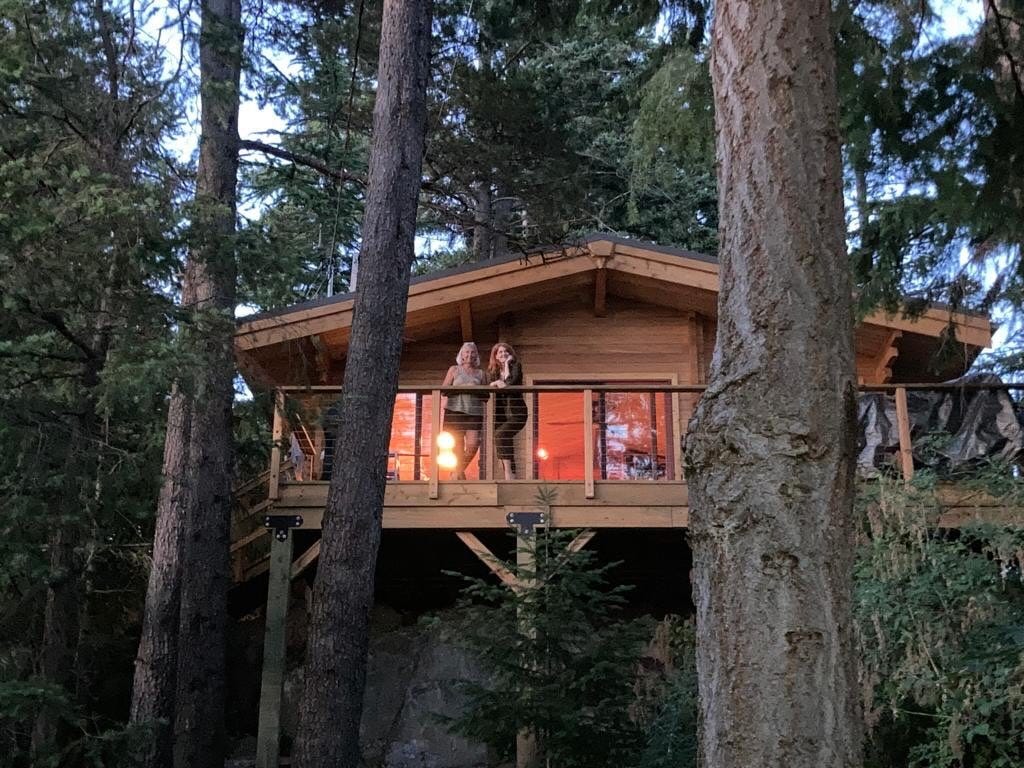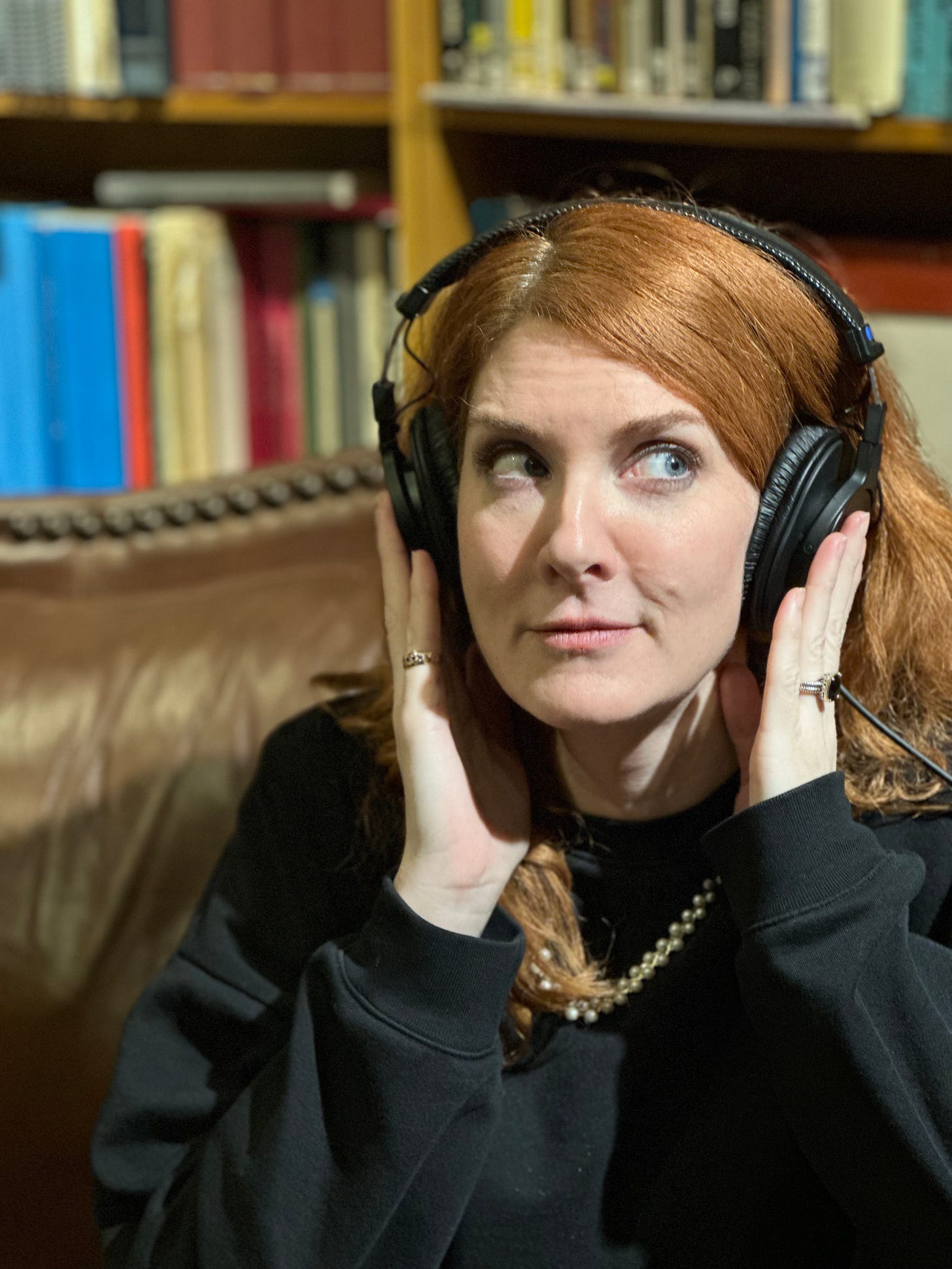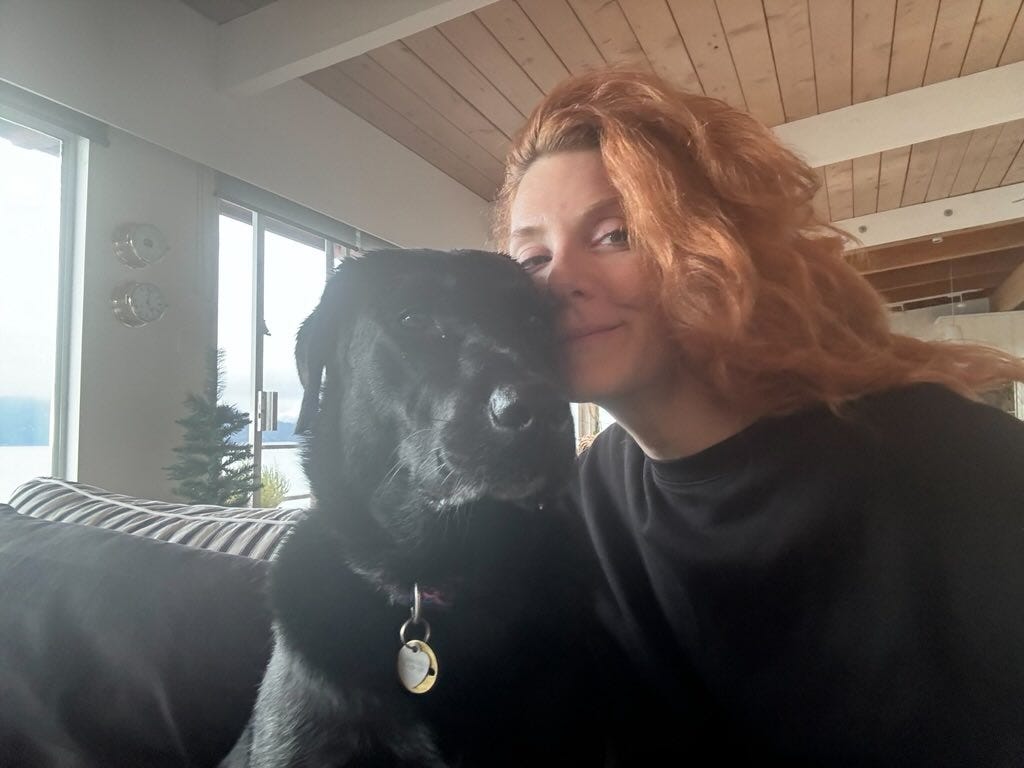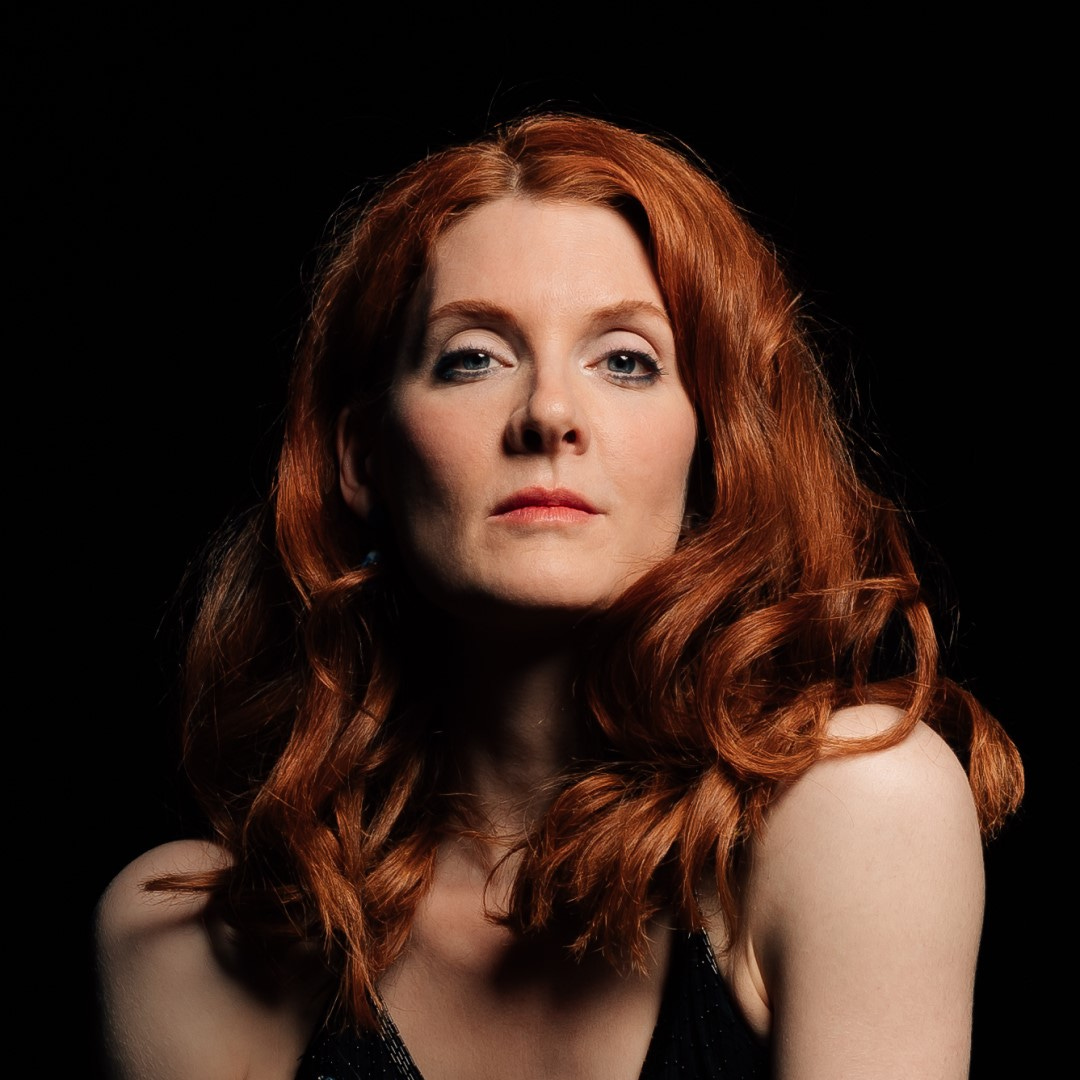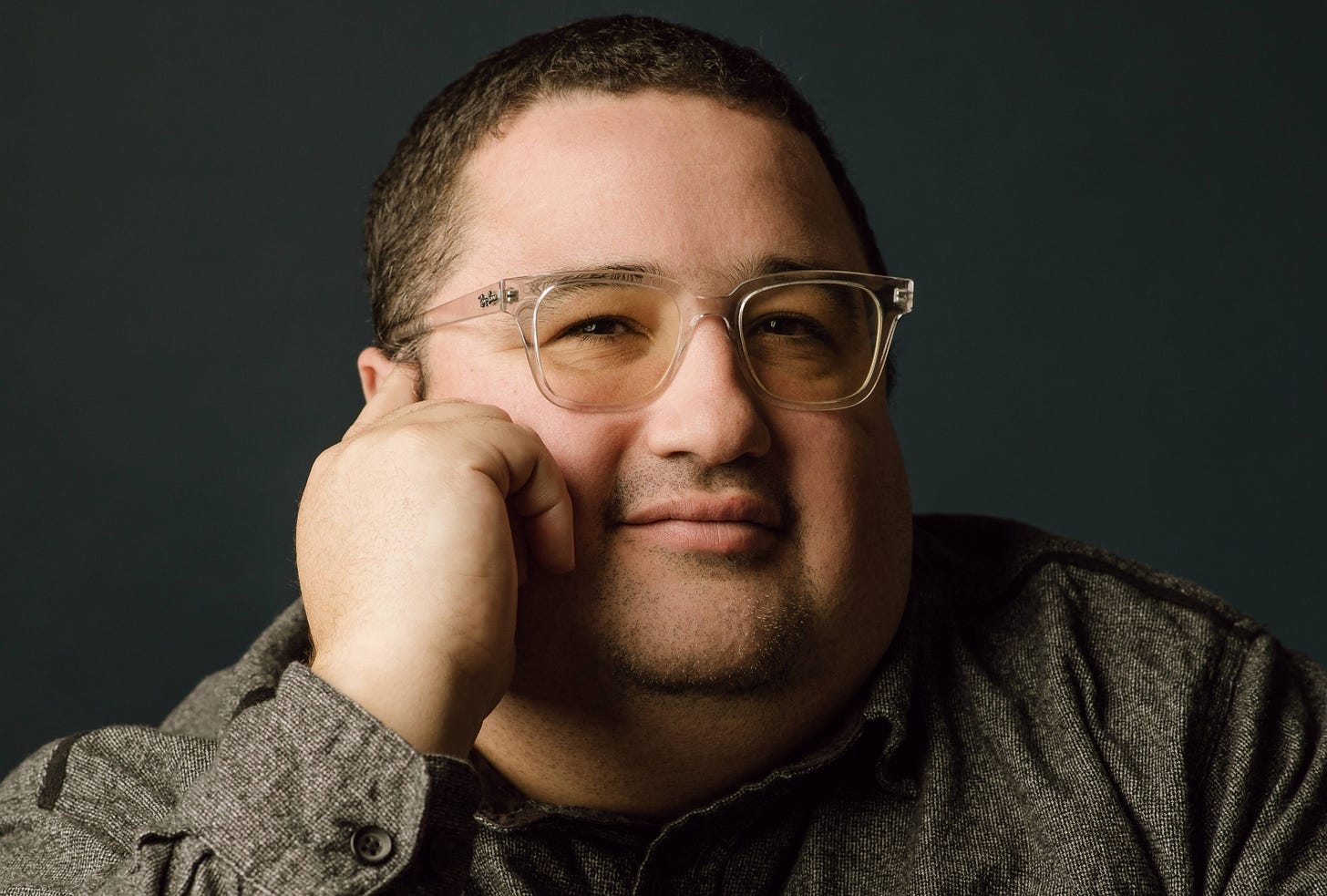You can also download the podcast on all major platforms including Apple Podcasts and Spotify.
*Listen above for a live podcast or scroll down for a transcript…
Ashley Daniel Foot:
On today's episode, we're proud to welcome the Canadian mezzo-soprano, Mireille Lebel, who's known for her captivating performances across the globe in operas such as Carmen, The Marriage of Figaro, and The Barber of Seville. And currently, she's starring as Count Orlofsky in our production of Die Fledermaus on stage October 26 to November 3rd. I hope you enjoy the conversation.
Mireille Lebel:
Growing up in Vancouver, you are living in a city, but you are surrounded, I mean, everywhere you turn there's nature that gets quite wild, quite fast, and it's very awe-inspiring. You feel, I feel, in any case, quite humbled by it. I definitely noticed that more when I moved away because I thought this was how the world was. No, it isn't. For me, I just realize how wondrous the natural world is. And I think this also reflects in the people who live here. I think you have a lot of sense of possibility and, well, possibility is really the best word because you have all this space, you have all this wildness, you have all this nature, and your soul can't help but embrace that. And so I definitely feel that because of this, I am open to many possibilities in life and also quite humbled by nature and forces bigger than me.
And being in Berlin for the past 15 years, I mean, it's a real place for misfits, I think. And there was this quote, "Du bist verrückt mein Kind, Du mußt nach Berlin," which means “You're crazy, my child. You have to go to Berlin.” And that is really the feeling I get. Everyone who didn't really fit in Munich and Frankfurt, and in the provinces, they move to Berlin. And so the people there are wild and they find community there. So that suits me really well too, I have to say.
Ashley Daniel Foot:
I was thinking about that because you really have spent years shuttling back and forth between Europe and North America performing, of course as opera singers do, in multiple languages. Is there something about your training or your performance style that you think is influenced more by who you are than by technique? So maybe your sense of humour, which you definitely have, does that show up in how you sing and perform, do you think?
Mireille Lebel:
Yeah, I think it does. I mean, there's a couple things. I do my due diligence and obviously technique is very important in this job. You can't actually sing the parts unless you have some kind of a good foundation of technique, but I'll always throw that under the bus for a laugh or a moment with the audience, or if there's something cruel or sharp in the music, I will try to be brave enough to go there. I mean, I would rather do that than have something perfectly sung because in the end, people are coming to feel something, and it doesn't necessarily happen. Of course, you can always admire beautifully sung parts, but there's something more I think that I'll be brave enough to try it and it doesn't always work, but I think that's something that I will, I'll definitely sacrifice some beauty for some feeling.
Ashley Daniel Foot:
You've played so many iconic roles when I'm thinking about this, from Carmen herself to Orlofsky right now, to Elle in La Voix Humaine. Do you think that there's ever been a role or performance that taught you something about you though that you didn't expect from that role? Is Orlofsky doing that? Did Carmen do it? Where does that come from?
Mireille Lebel:
Well, there's one thing that stands out. When I was first, I left the Montreal Young Artist Program to go be a member of an ensemble in a German opera house. And the first season, it was so different just to be on stage so many nights a week and have essentially a nine-to-five job in opera. And I played L'Enfant in L'Enfant et Les Sortilèges by Ravel, and I had to have this temper tantrum on stage, and I thought I was doing something totally crazy and nuts and just ripping it off and lighting on fire the stage. And afterwards, one of the designers, he's like, "Huh, it was okay." He's like, "But a little controlled, no?" Like, a little tame. I was like, "A little tame?" I had this impression that I was being so crazy and outward and I wasn't. And then it kind of made me realize I might be holding on a little too tightly. And so I think that was the beginning of my journey of, "Maybe it doesn't always have to be so perfect."
Ashley Daniel Foot:
In 2018, you experienced a burn injury during rehearsals in opera, in Toronto, and yet you managed to return onto the stage for that very opera. How did that experience influence the way that you think about your instrument, yourself, both on and off stage?
Mireille Lebel:
When something like that happens your whole being is just in the moment and in the moments directly afterwards, it's just on "let's get through this" mode. So you don't have a lot of time for extra thoughts. And the thoughts just come in the weeks, in my case, in the weeks after, and all of a sudden I was like, "What if that burn had affected my face? That could have really affected my career in a way that I might not have performed so much anymore." And that somehow just terrified me, and I felt like, "I'm not ready. I'm not ready to not do this anymore." And they assigned me a counsellor in the hospital, and I just thought, "This is so ridiculous because what is she going to know about being a performer?"
And she floored me. She understood a hundred percent what it was. I don't know what her specialty was, but she just said, "Mireille. It wasn't this time, but you are going to have to face that in your life. At some point you're not going to be on stage anymore." And she said, "You have to already think about that, and everyone has to go through it." And first of all, it makes you realize you don't have as much control as you think, over anything. And that is actually in a way a very freeing thought.
I'm not a religious person, so I didn't have the comfort that you can really feel if you're very spiritual, or if you believe in God you can definitely, I think, find a lot of comfort in your life that way. And because I never had faith, I never had that comfort. So I was in a way just kind of waving in the wind. I didn't have a tether. But talking to her about that and realizing you don't have control, and sometimes the universe acts even if you're not ready for it to act, it just made me realize maybe I need to trust that when that happens, somehow I will be ready for it. So it shifted my thoughts a lot about everything about life. Anyway, I'd say I was a much happier person after that accident happened.
Ashley Daniel Foot:
I want to switch gears and talk back about Count Orlofsky.
Mireille Lebel:
Yes, let's talk about Orlofsky. So great!
Ashley Daniel Foot:
Why?
Mireille Lebel:
Oh my gosh. Well, just because I do think there's something about this person insulated by money to the point where he can get out of any situation that he doesn't want to be in. He's not into the conversation? He can turn around. He doesn't depend on anyone for anything. So he in a way can just be the most himself he can. He's highly eccentric and there's no one going to stop him from doing that because he has all the cards. He has complete power to do whatever he wants. And I kind of love playing a character like that. It's very liberating.
Ashley Daniel Foot:
We've talked a lot about opera, but when you're not on the stage, what are you doing? Are there activities or passions that keep you, I use the word grounded?
Mireille Lebel:
Well, I definitely am really into #living and definitely this attitude of life as a banquet. And this kind of started weirdly during the pandemic, well, first the accident and then the pandemic, and I'm like, "Mireille, you have to live. You do not get a second chance." I always kind of in the back of my head, thought I got a second chance, and I was like, "Wait, no, there is none. There is not a second chance." So when I'm not singing, I have my friends. I have a very tight friend group in Berlin. I have them over for dinner all the time. And I am obsessive about accumulating people's old things that they don't want anymore. So I spend a lot of time on Ebay-Kleinanzeigen and thrifting and this kind of thing. And I do a very fancy apartment. I do a fancy apartment with people's old things they don't want anymore.
Ashley Daniel Foot:
What's the most interesting thing that you've gotten recently?
Mireille Lebel:
Oh my goodness. There's so many things. I mean, I travelled with a little quarter horse, like a tiny little porcelain horse, and the guy in customs is like, "Do you have a horse in your bag?" I'm like, "Yes, sir. I do." I have all kinds of weird things. I have taxidermy creatures. I'm looking for a glass eye. That's what I would really love to add to my collection. Just going to casually put it in a beautiful bowl and people can just be like, "Is that an eye?" I'd be like, "Yes. It's an eye."
Ashley Daniel Foot:
I have hope for you.
Mireille Lebel:
Thank you.
Ashley Daniel Foot:
We talked briefly about the pandemic, and you said that was a moment of discovery in so many ways, and you were involved in some digital performances that happened. Where does that play in the future of opera? And I guess it's a big question because do you think our art form is moving in a direction that really gives you hope or are there shifts that you'd still like to see happen and what might they be?
Mireille Lebel:
Okay. I think definitely there's shifts that I'd like to see happen because that's exactly the thing, I think that we can never stand still in anything in our own lives and in our industry. I mean, I certainly love the way that people are doing more social media, more posting things more. I would like to see a little bit of those old rules ease up a bit. And I know that, for example, we can very rarely post things from a show on stage because there's really strong union rules and they're in place for a reason.
But I think in a way, we have to work together to realize that that's how people consume everything now. That's how people consume their news. And so of course, I find it very effective to just share the most simple things, like literally sitting at the piano, practising. People are like, "What?!" That's already something great, but if we could share more of what we're doing on stage and didn't have so much red tape and everyone has to work together with this, but just seeing the reality of how people are getting their entertainment, how people are getting their information, I think we need more, always.
Ashley Daniel Foot:
We really do.
Mireille Lebel:
I really think we do.
Ashley Daniel Foot:
I want to know, and I ask this to so many singers, was there a moment when you discovered that you had a voice? I want to go back to that moment.
Mireille Lebel:
You know what, I just loved singing. But no one believed that I had a voice. That is the thing with me. I'm like a dog with a bone. I love to sing. And okay, some days I sounded okay. Sometimes I sang a piece from Grease for my school class friends, and they were like, "Oh, you sound so good." And that gave me encouragement. But no one serious really thought I had any talent, and I guess I just kept pushing, because I felt like I did. I felt like I did. I just wanted to sing. And I was like, "No, but this can't not happen."
Ashley Daniel Foot:
What are the tools that you need to make the sounds that make you who you are?
Mireille Lebel:
I think you have to be a dog with a bone. I think all singers do. You have to, because the thing is, if the will is there, you will find the way. Because you can be amazing at technique and just have the most beautiful voice. Someone's going to love that and hire you. And a lot of people are going to be a fan of that. Some people you are overcome with the emotion in their voice, and sometimes you're like, "How did they even get that note, because technically I don't think that was very... I don't know if that was very legit technically," but somehow they get it because you know what? They want to get it. They want to communicate with you. They want to get that note, and they just find a way. And so I think if you want to be a singer, I mean, unless you're tone-deaf that, unfortunately you can't-
Ashley Daniel Foot:
Slightly limiting perhaps?
Mireille Lebel:
Yeah, that is limiting. I mean, I hate to say it, I want to be like, "Everyone can be a singer," but no, if you're tone-deaf, this would be almost impossible. But not that many people are tone-deaf.
Ashley Daniel Foot:
Greg Dahl and I talked about tone a lot in our chat, and he said something so interesting. He said, air is everything.
Mireille Lebel:
The worst trouble you can get into as a singer is cutting off your air. Without the life that is the air, you can't have sound without breathing, well, breathing life into it without breath, without air.
Ashley Daniel Foot:
So what cuts your air off as a singer? What are the kinds of things physiologically, but also probably like psychologically?
Mireille Lebel:
Fear, getting scared, your nerves, you get nervous. It can either work in that you make yourself smaller, and then you kind of compact. You squish everything down, and then you just, the air doesn't have the space it needs to flow, to circulate. You could almost bear down. Essentially, I think fear is a big impediment to the flow and release of the air, and it's easy to say, "It's no big deal. Don't be nervous." But our brains, our prehistoric brains that are like fight or flight, "We're in a stressful situation. This is dangerous. I have something to lose here." It's stronger than you and it kicks in. So I think a huge part of being a singer is psychological.
Ashley Daniel Foot:
When we talk about the fear that is there, and it comes on many different levels, I would imagine as a singer, I think there's also a leap of faith and also a trust that you build with the collaborators that you have. When I think of the relationships that you have with your conductors, when I think of the work that you've done with our associate conductor, Les Dala, how does that all come together? How does that link into not only dispelling the fear, but allowing you to truly access that air?
Mireille Lebel:
Because singing is, as well as an art form, there's a big athletic component, sometimes in opera people get a little too fixated on that, and that's where it becomes a problem. Because if everyone is working together, your colleagues, and you, maestro and the director, if everyone's working towards the goal of communicating something, then in a way the fear is really removed. If you as a singer are just feeling like you're being judged, and if your D wasn't as good as the D that maestro heard in Torino last month, then just the result is disastrous.
So interestingly, more and more, I really feel that things have changed, especially since the pandemic and also just people are more honest about mental health. People are more honest about what they're going through. And in a way, there's more of a softness in this industry that was not really there I'd say, especially 20 years ago when I started. It was like, if you weren't a tiger, you would just get squished. And I don't feel like it's like that anymore. And because singing is so personal, because you need your air to flow, the more the collaborators are interested in communication and what music can do for the soul, then that's the optimal singing condition.
And I have to say that Vancouver is a very special place. I also think that's because Vancouver isn't crushed under a very heavy classical music hierarchy or history. We're in a way quite free because we don't have the tradition of classical music for more than what? How long could it have been playing here? For a hundred years? 150 years? Not even, but you know what I mean.
Ashley Daniel Foot:
Mireille Lebel:
Well, yeah, here. That's right. 65. Well, exactly. So there you go. We're not crushed under that weight. So the feeling here is very good.
Ashley Daniel Foot:
What are the three things that when you're letting your air flow, what are the three feelings that you have when you're really nailing it?
Mireille Lebel:
It's, oh Ashley, it's honestly... The five times in my life where that's happened.
Ashley Daniel Foot:
Oh, tell me even just one of those times.
Mireille Lebel:
You feel invincible and you feel connected to everything. You feel connected to the universe. You feel connected to nature, you feel connected to humans, the people around you on stage. You feel connected to the people that are also listening to you in the audience and watching you. And there's no difference then between you and any other human being. You really feel that you're all in the same boat. And that feeling is honestly, it's absolutely intoxicating. I would do this until I drop dead just to have that feeling like five more times.
Ashley Daniel Foot:
I think you've captured exactly why we all do this. Whether we are actually singing on the stage with you or whether, we feel those moments as well.
Mireille Lebel:
Yes, exactly! That's the thing!
Ashley Daniel Foot:
And we want to have that experience, and I think that's one of the beauties in why we have audience members that come back and back.
Thanks so much for sharing your journey with us, Mireille. It's a pleasure. We can't wait to see you bring Count Orlofsky to life on stage.
What's next for you?
Mireille Lebel:
Well, I have to go to Berlin and live a bit because during a contract I'm essentially quite a nun, so I got to balance it out with some living. And then a really amazing contemporary opera project of Ana Sokolowicz's at Opera de Montréal. And some early music with Opera Atelier. So it's a lovely season.
Ashley Daniel Foot:
Mireille Lebel will be on stage from October 26 to November 3rd in Die Fledermaus. If you haven't got your tickets, do so now at VancouverOpera.ca. As always, thank you to our trusty producer, Mack McGillivray, and I'll see you at the opera.
Mireille Lebel - Mezzo-Soprano
Mireille Lebel grew up in Vancouver and is based in Berlin. She sings leading roles for lyric mezzo in opera houses internationally. While continuing to add roles to her core repertoire, she produces and creates musical projects. In 2020 she co-founded the artistic collective Crown The Muse in Berlin with frequent collaborator, the soprano/pianist Rachel Fenlon. They were awarded a Canada Council Grant for their first collaboration, a staged two woman opera directed by Bruno Ravella. She has recorded 7 opera discs with the Boston Early Music Festival on the CPO Radio Bremen label, including the 2015 Grammy Winner La descente d’Orphée aux enfers, and continues to collaborate with them on live and recorded baroque opera projects.
Ashley Daniel Foot - Host of Inside Vancouver Opera
Ashley is Vancouver Opera’s Director of Engagement and Civic Practice and host of Inside Vancouver Opera. Boundlessly creative and fascinated by the way that art is created and presented, Ashley has guided arts organizations across Canada to craft messages and tell unique stories.
Mack McGillivray - Audio Producer and Editor
Mack is an audio producer, creating shows for radio and podcast. He is passionate about cultivating local community and a lifelong lover of opera.






